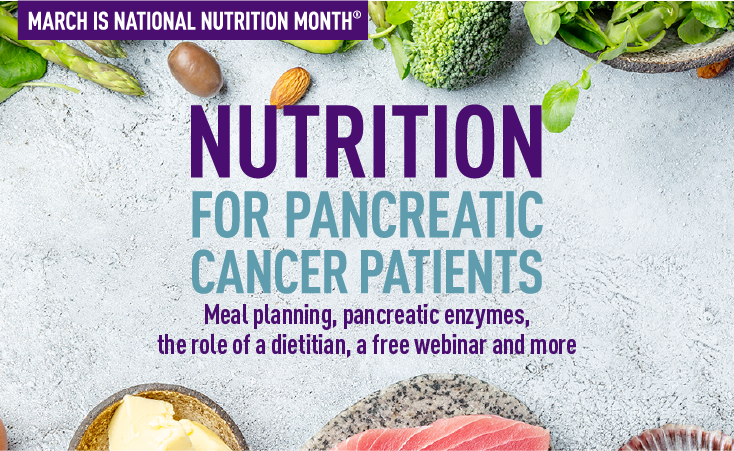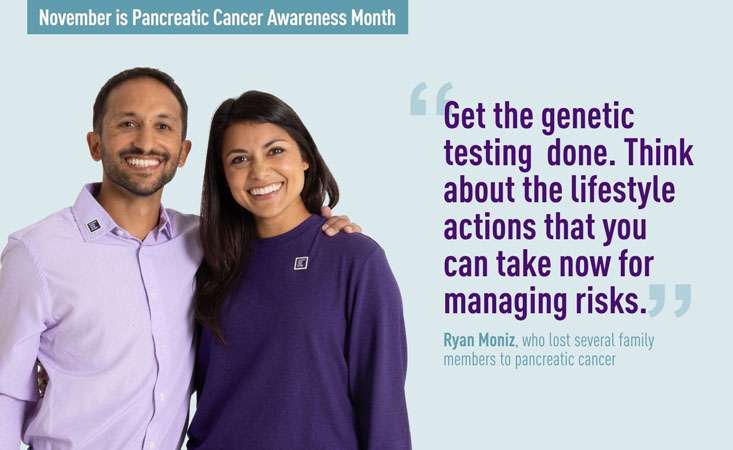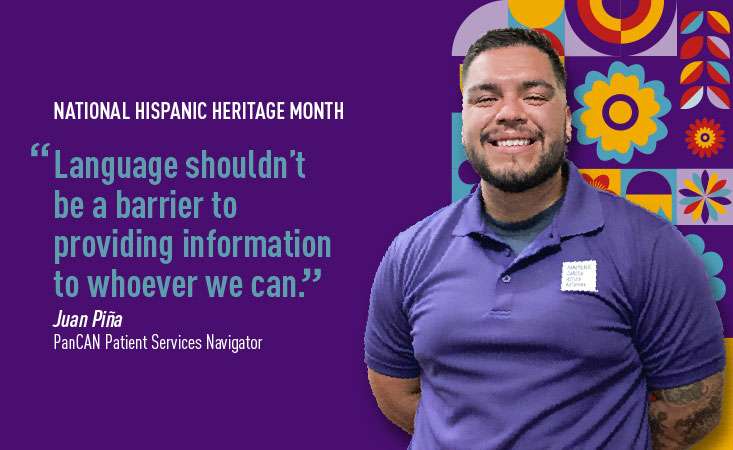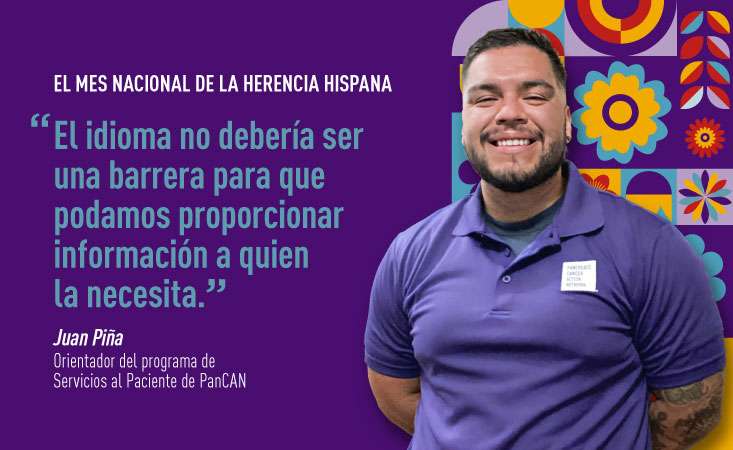
March is National Nutrition Month® and we’re featuring a webinar on March 24 as well as a month-long blog series focused on diet and nutrition for people with pancreatic cancer. We’ll explore the role of a dietitian, the importance of pancreatic enzymes, how to modify favorite dishes and more. Stay tuned!
For patients with pancreatic cancer, good nutrition is critical, as eating the right foods can help improve outcomes and quality of life. To kick off National Nutrition Month®, we’ll explore dietary guidelines that address common challenges for patients, from coping with weight loss to preventing diarrhea to managing changes in taste and smell.
It’s important to note that each patient has individualized nutritional needs. Patients and their caregivers should consult with a registered dietitian or doctor before making any dietary changes. The dietitian or doctor can also help create an appropriate dietary plan.
Here, we explore a few of the most common challenges that patients with pancreatic face when it comes to diet and nutrition. We’ll address other topics during the March 24 webinar and in additional blog posts throughout the month.
Coping with Weight Loss
Losing weight is a common problem in individuals with pancreatic cancer. Also called cancer cachexia, it can be associated with treatment or with the cancer itself. Side effects or symptoms such as loss of appetite, malabsorption of nutrients from foods and nausea and vomiting can cause a patient to consume fewer calories than the body needs to maintain an appropriate weight. Suggestions to cope with weight loss include:
- Eat calorie-rich, nutrient-dense foods and maintain adequate hydration.
- Use nutritional supplement drinks, such as Boost®, Ensure® and Carnation Essentials®, as snacks or drink with medications that can be taken with food.
- Check with the doctor to see if medications to stimulate appetite would be helpful in controlling weight loss.
- Get plenty of rest.
- Incorporate light physical activity as it supports lean body mass, may enhance appetite and may decrease fatigue. Aim for a total of 30 minutes per day of activity, such as walking. Consider breaking activity into small increments of 5-10 minutes.
Read additional recommendations for coping with weight loss.
Preventing Diarrhea
Health professionals generally characterize diarrhea as 4 or more loose stools per day. Causes vary but may include chemotherapy or radiation therapy. Diarrhea may also be a side effect of common pancreatic cancer surgeries like the Whipple procedure. Some recommendations to prevent and manage diarrhea include:
- Choose low fat foods and foods that contain soluble fiber, such as oat fiber, and high-pectin foods like applesauce and bananas to better manage diarrhea.
- Avoid fatty, greasy or fried foods and foods with added oil, butter, margarine, sour cream, cream cheese or salad dressing as these may aggravate diarrhea.
- Talk to the healthcare team about over-the-counter or prescription anti-diarrhea medications.
- A journal may be helpful to track the onset, frequency, duration, stool consistency and self-care measures. Consider sharing this written record with the doctor or dietitian to help devise a plan to manage the diarrhea. Since diarrhea can cause dehydration, it may also be helpful to keep track of fluid intake.
Read additional suggestions for preventing diarrhea.
Managing Taste Changes
Some patients with pancreatic cancer experience changes in how food tastes and smells. The reasons for these changes are not known but they are especially common with certain types of chemotherapy. Some foods may taste overly strong, salty or metallic, while some may have no taste at all. Suggestions to manage taste changes include:
- Use plastic cutlery to minimize metallic tastes.
- Eat cold or room-temperature foods. Hot foods tend to have a strong taste and smell.
- Marinate meat in sweet or tart fruit juices to make it taste less strong.
- Prepare food ahead of time so fewer odors are present while eating.















